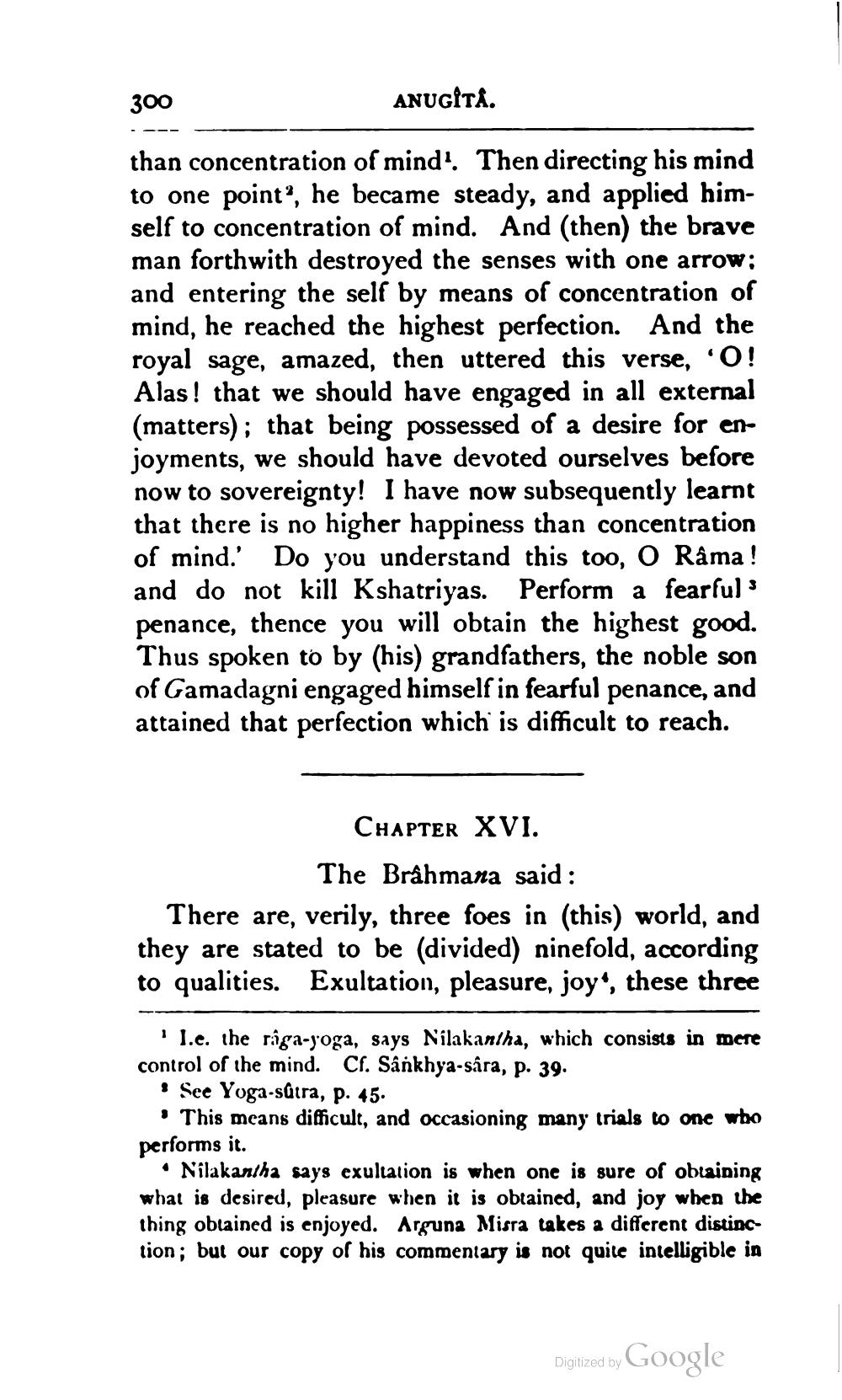________________
300
ANUGÍTÁ.
than concentration of mind'. Then directing his mind to one point”, he became steady, and applied himself to concentration of mind. And (then) the brave man forthwith destroyed the senses with one arrow; and entering the self by means of concentration of mind, he reached the highest perfection. And the royal sage, amazed, then uttered this verse, 'O! Alas! that we should have engaged in all external (matters); that being possessed of a desire for enjoyments, we should have devoted ourselves before now to sovereignty! I have now subsequently learnt that there is no higher happiness than concentration of mind. Do you understand this too, O Rama ! and do not kill Kshatriyas. Perform a fearful : penance, thence you will obtain the highest good. Thus spoken to by (his) grandfathers, the noble son of Gamadagni engaged himself in fearful penance, and attained that perfection which is difficult to reach.
Chapter XVI.
The Brahmana said: There are, verily, three foes in (this) world, and they are stated to be (divided) ninefold, according to qualities. Exultation, pleasure, joy', these three
il.c. the râga-yoga, says Nilakantha, which consists in more control of the mind. Cr. Sankhya-sara, p. 39.
· See Yoga-sútra, p. 45.
• This means difficult, and occasioning many trials to one who performs it.
• Nilakantha says exultation is when one is sure of obtaining what is desired, pleasure when it is obtained, and joy when the thing oblained is enjoyed. Arguna Misra takes a different distinction; but our copy of his commentary is not quite intelligible in
Digitized by Google




